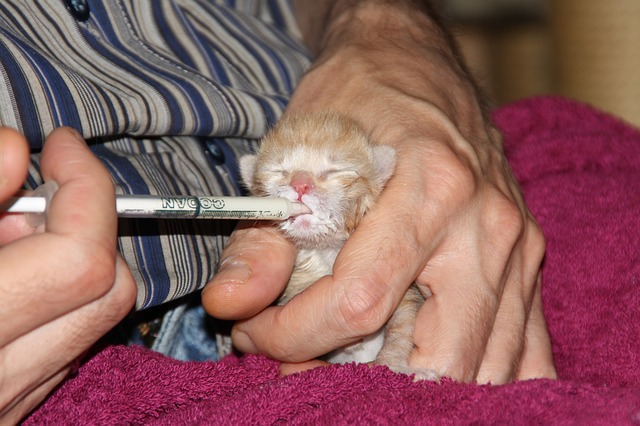Oregon DHS offers a comprehensive child welfare system focusing on safety, well-being, and permanent housing for vulnerable children and families. The process begins with a mandatory report of suspected abuse or neglect via a 24/7 hotline, followed by a discreet investigation. Trained professionals assess the situation and assign a Case Manager to develop a customized case plan including counseling and parent education. DHS emphasizes alternative resolutions like Family Safety Plans and ongoing support services to keep families together while prioritizing child safety, aligning with Oregon's child welfare process guide.
“Uncovering Oregon’s DHS Child Welfare Process: A Comprehensive Guide
Oregon’s Department of Human Services (DHS) plays a pivotal role in ensuring the well-being of children through its child welfare services. This detailed guide aims to demystify the complex child welfare process, offering an insightful look at each crucial step. From reporting suspected abuse or neglect to investigations, case management, and alternative resolutions, we provide a clear understanding for those involved. By shedding light on this vital process, our goal is to empower families and community members alike in navigating Oregon’s DHS child welfare system.”
- Understanding Oregon DHS Child Welfare: An Overview
- Reporting Suspected Child Abuse or Neglect
- The Investigation Process and Case Management
- Alternative Resolutions and Ongoing Support for Families
Understanding Oregon DHS Child Welfare: An Overview

Oregon DHS, or the Department of Human Services, oversees a comprehensive child welfare system designed to protect and support vulnerable children and families. The agency’s primary goal is to ensure the safety, well-being, and permanent housing of children who are at risk or unable to live with their parents. This involves a multi-faceted approach, including prevention services, resource coordination, and intervention strategies.
The child welfare process in Oregon begins with an intake assessment, where professionals evaluate reports of abuse, neglect, or dependency. They work closely with families, offering support and resources to resolve issues and keep children safe within their homes whenever possible. If out-of-home placement is deemed necessary, the DHS facilitates a smooth transition, connecting families with appropriate services and ensuring ongoing communication. This process aims to provide a stable environment while also guiding families towards long-term solutions and self-sufficiency.
Reporting Suspected Child Abuse or Neglect

In Oregon, reporting suspected child abuse or neglect is a crucial step in the child welfare process guide. Any individual who witnesses or suspects harm to a child, including physical, emotional, or sexual abuse, as well as neglect, has a legal obligation to report it to the Department of Human Services (DHS). This can be done by contacting the DHS 24-hour hotline at 1-855-567-7634. The report should include specific details about the incident, the child’s information, and any relevant evidence or observations.
The DHS receives all reports of suspected abuse or neglect discreetly and conducts a thorough investigation to determine if the allegations are valid. During this process, they prioritize the safety and well-being of the child, working with law enforcement when necessary. The agency also provides resources for reporting individuals who may not be sure if an incident constitutes abuse or neglect, helping them make informed decisions that contribute to Oregon’s comprehensive child welfare process guide.
The Investigation Process and Case Management

The Oregon Department of Human Services (DHS) Child Welfare division initiates an investigation upon receiving a report of potential child abuse or neglect. This process involves a trained professional who thoroughly assesses the situation, interviewing family members and relevant individuals, reviewing medical and school records, and observing the home environment to gather facts and determine the safety and well-being of the child(ren) involved. The investigator works to build a comprehensive case, identifying any risks and appropriate interventions needed.
Once an investigation is complete, the case is assigned to a Child Welfare Case Manager. They are responsible for developing a case plan tailored to the unique needs of the family, which may include services such as counseling, parent education, or in-home support. The case manager acts as a liaison between the family and various service providers, ensuring the child welfare process guide is followed while advocating for the best interests of the child(ren). Effective case management helps families navigate this challenging time, offering necessary resources and guidance toward resolving issues and achieving stability.
Alternative Resolutions and Ongoing Support for Families

In Oregon, the DHS (Department of Human Services) recognizes that every family is unique and may require different approaches to resolve issues related to child welfare. Alternative Resolutions are an integral part of the child welfare process guide, focusing on keeping families together when possible while ensuring the safety and well-being of children. These alternatives include Family Safety Plans, where a plan is tailored to address specific risks and needs, allowing families to implement strategies to keep their children at home.
Following alternative resolutions, ongoing support services are provided to assist families in maintaining stability. This includes access to parent education programs, counseling, and other resources designed to strengthen family relationships and enhance parenting skills. The goal is not only to resolve immediate concerns but also to empower families with the tools needed to navigate future challenges effectively.






